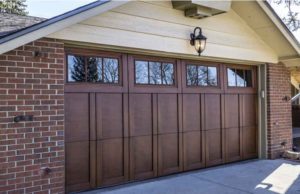Senate Passes Long-Term Transportation Investment Bill with Kirk Priorities for Illinois
Bipartisan DRIVE Act Includes Kirk Legislation to Reopen Ex-Im, Makes Critical Infrastructure Upgrades to Keep Illinois Freight Hub of North America; Invests $6.3 Billion in Illinois Highway, Transit and Rail Infrastructure Over Next Three Years
WASHINGTON, D.C. – August 3, 2015 – (RealEstateRama) — U.S. Senator Mark Kirk (R-Ill.) today helped pass long-term highway and rail bill that invests $6.3 billion in Illinois highways and transit systems over the next three years and includes Kirk-authored legislation to reform and reauthorize the Export-Import Bank and open access to low-interest financing for freight and passenger rail projects.
“As the crossroads of the nation, Illinois needs this long-term highway and rail bill to maintain its position as the nation’s transportation hub,” Senator Kirk said. “The Illinois economy depends on strong infrastructure investments so commuters can travel efficiently and safely and our exporters can ship Illinois products to markets around the world. This bill helps reduce road congestion, upgrades deteriorating roads and bridges, and reauthorizes the Export-Import Bank that supports 47,000 Illinois jobs.”
The bipartisan Developing a Reliable and Innovative Vision for the Economy (DRIVE) Act, which passed the Senate by a vote of 65 to 34, sets the nation’s highway, bridge and rail infrastructure and safety policy for six years, with three years of guaranteed funding, and would be the first long-term surface transportation bill since 2005. The bill invests $2.03 billion in Illinois’ highways and transit infrastructure in fiscal year 2016 alone. Long-term funding for our surface transportation system is key to reducing the backlog of transportation improvement projects and upgrading our deteriorating roadways, which the American Society for Engineers (ASCE) has estimated cost Illinois motorists $3.7 billion annually in additional vehicle repairs and operational costs. The bill includes $7.1 billion over three years for Congestion Mitigation and Air Quality (CMAQ) Improvements that are critical to lowering emissions, reducing road congestion, and boosting our economy. Congestion on Chicago’s roadways is estimated to cost the local economy $4 billion every year, according to ASCE.
The Senate today also approved a three-month extension of the current transportation law, which is set to expire on July 31, to allow the Senate and House time to resolve differences between their bills through a conference committee. Senator Kirk will fight to include the many pro-Illinois reforms and programs included in the Senate-passed legislation.
Reforms and Reauthorizes the Export-Import Bank
The DRIVE Act includes Senator Kirk’s bipartisan legislation to reauthorize and reform the Export-Import Bank (Ex-Im), which supports 244 Illinois businesses and 47,000 Illinois jobs. The Export-Import Bank Reform and Reauthorization Act (S. 819), which Senator Kirk introduced with Senator Heidi Heitkamp (D-N.D.), was adopted as an amendment to the DRIVE Act by a vote of 64 to 29. The Kirk-Heitkamp bill would extend Ex-Im’s charter, which expired June 30, until 2019.
The top Illinois companies supported by Ex-Im are The Boeing Company, CNH Industrial America and Caterpillar. The agency also assists hundreds of small businesses throughout the state. Ex-Im operates at no cost to the taxpayer, and in the past three years the bank has returned $2.5 billion to the U.S. Treasury. The Congressional Budget Office estimates that the Kirk-Heitkamp bill would save taxpayers an additional $2.3 billion.
Opens Access to Low-Interest Financing for Rail Projects
Additionally, the DRIVE Act includes a Kirk-driven provision to increase investments in passenger and freight rail infrastructure projects. Senator Kirk worked to make reforms to the Railroad Rehabilitation and Improvement Financing (RRIF) program to better leverage private sector investment while protecting taxpayer interests.
The RRIF program is responsible for issuing loans for rail development and was first authorized in 1998, but over the past 17 years the program has issued less than 5 percent of the $35 billion in funding that was authorized. The program is underutilized because potential recipients of financing are too often discouraged from applying due to administrative red tape. For instance, the average RRIF loan takes 278 days to process. Senator Kirk’s reforms eliminate these obstacles, lifting barriers to better leverage private involvement, maximize investments and improve the rail system in Illinois.
Invests in Statewide Multimodal Infrastructure
Investing in transportation infrastructure in Illinois, which has the world’s busiest airport, the second most rail crossings in the nation, the third largest interstate highway system, and docks that ship nearly 70 million tons of commodities each year, is key to maintaining the state’s competitiveness on a global stage. It is estimated that half of all movements of freight among various modes of transportation in the U.S. touch Illinois. The new national freight policy in the DRIVE Act has a multimodal focus, which is critical to keeping Illinois the freight hub of North America.



